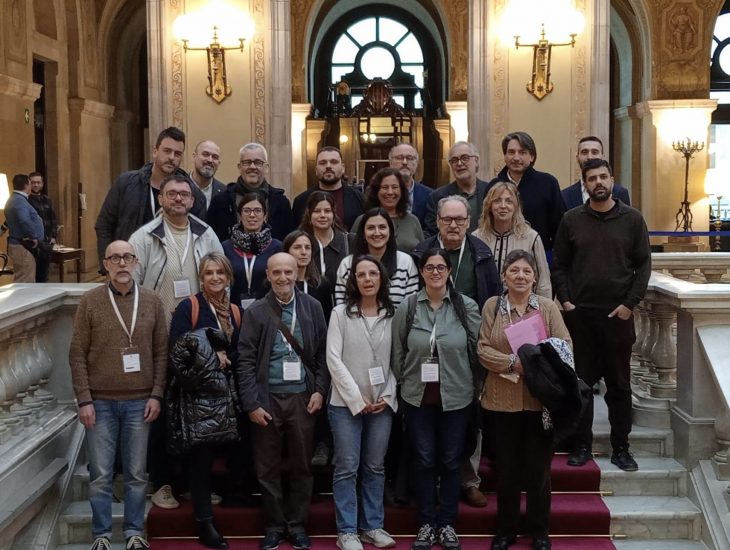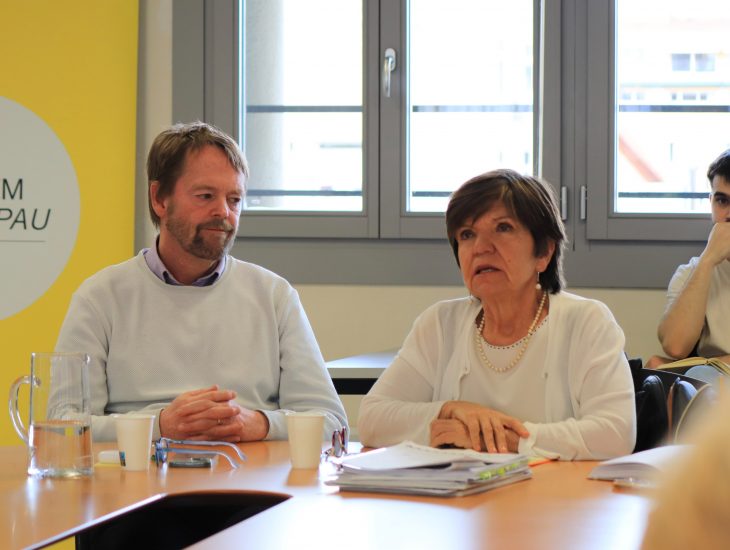On 20-21 March, ICIP held the seminar Building peace after violence, at the Palau Centelles in Barcelona. The aim of the seminar was to reflect on aspects that characterize societies living through a post-conflict period and analyze prevailing mechanisms to deal with these scenarios: transitional justice and experiences of memory, coexistence and reconciliation.
The inaugural conference was given by Professor Oliver Richmond, member of the Humanitarian and Conflict Response Institute, who reflected on the concept of liberal peace, based on neoliberal paradigms, the limits it faces today, and the challenges of building peace in a changing and globalized world, where citizens are becoming more sovereign and demand a different type of governance.
In addition, the seminar brought together a dozen international experts from countries that have been marked by violence, such as Colombia and the Basque Country. These included María Camila Moreno, director for Colombia of the International Center for Transitional Justice; Farid Benavides, former Vice-Minister of Justice of Colombia; Mark Freeman, executive director of the Institute for Integrated Transitions; Xabier Etxeberria, Professor of Ethics at the University of Deusto; and Irantzu Mendia, researcher at the Hegoa Institute. They all reflected on peacebuilding in transitional periods from different points of view: What elements are needed for a transition to be successful? What is the role of transitional justice? What role should women play in peacebuilding processes? How should victims be treated? How should memory of the conflict be dealt with? What is the purpose of truth commissions?
ICIP organized this seminar as a space for reflection within the reflection process being carried out by the institution in order to focus on more specific lines of work and prioritize certain issues over others.
Video of all the seminar sessions are available on ICIP’s YouTube channel.
28.01.2017



